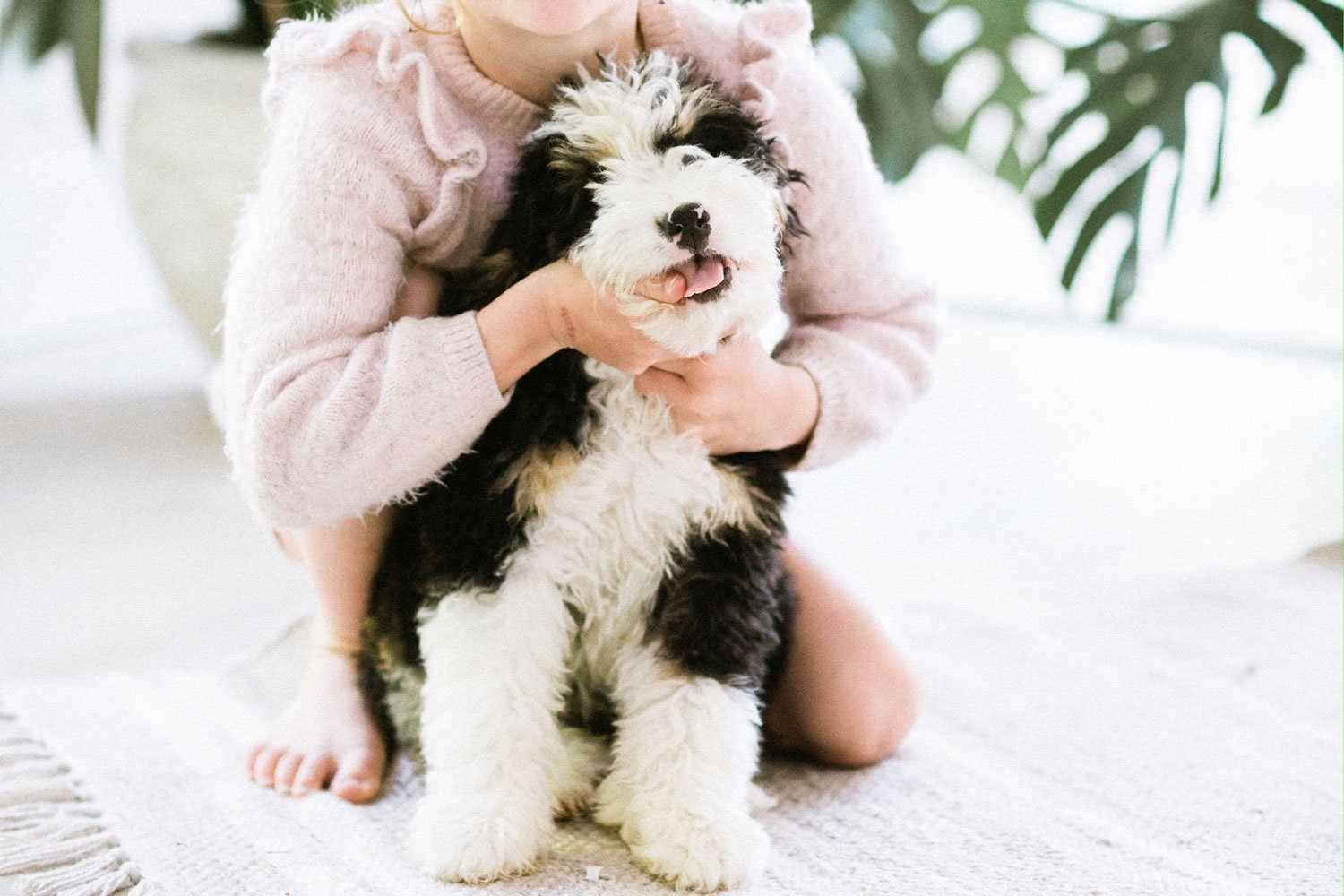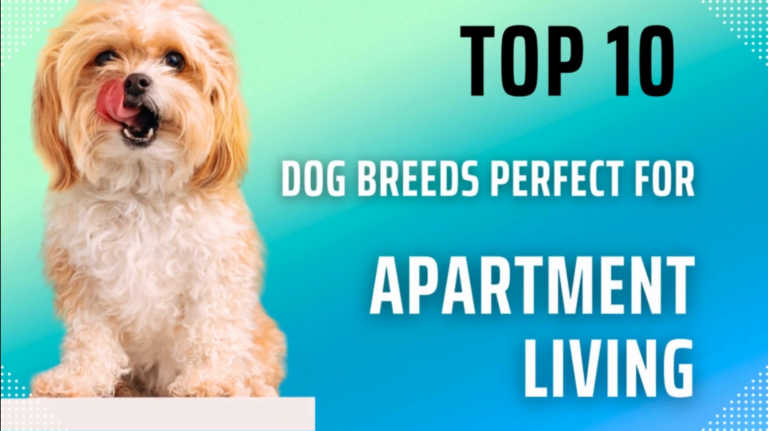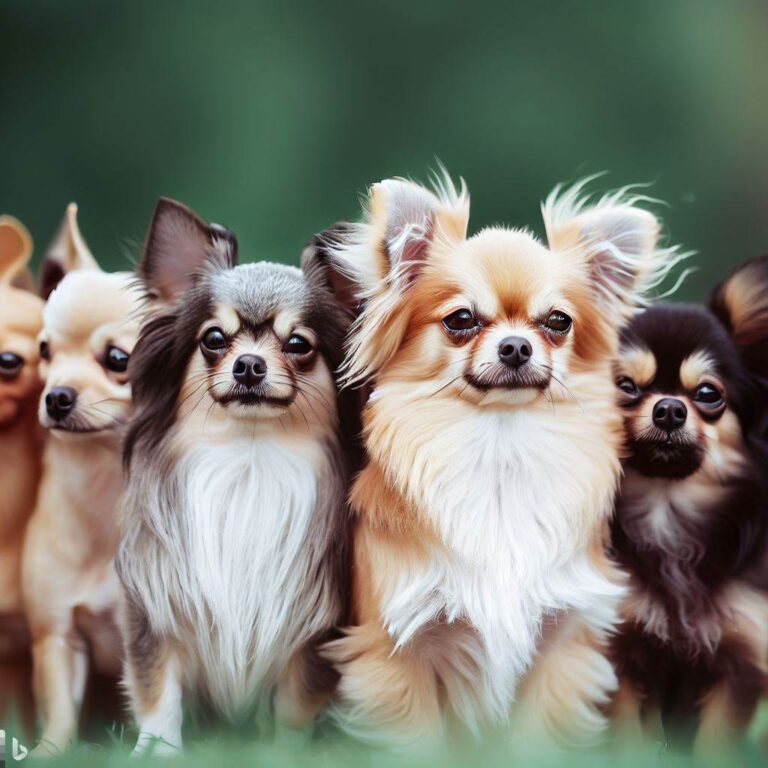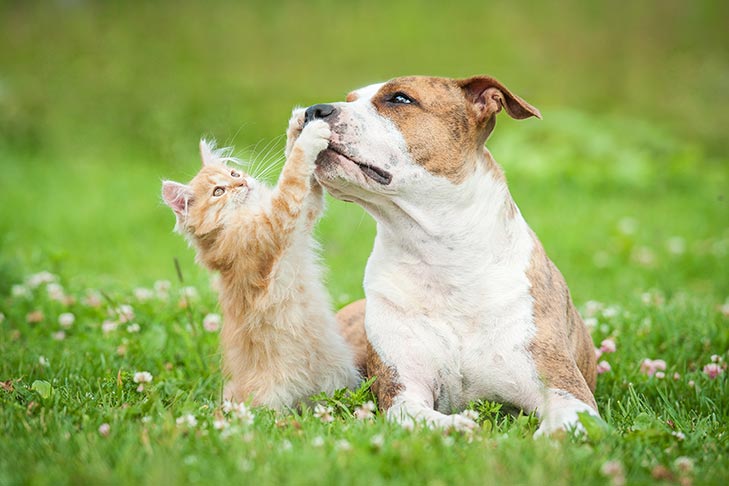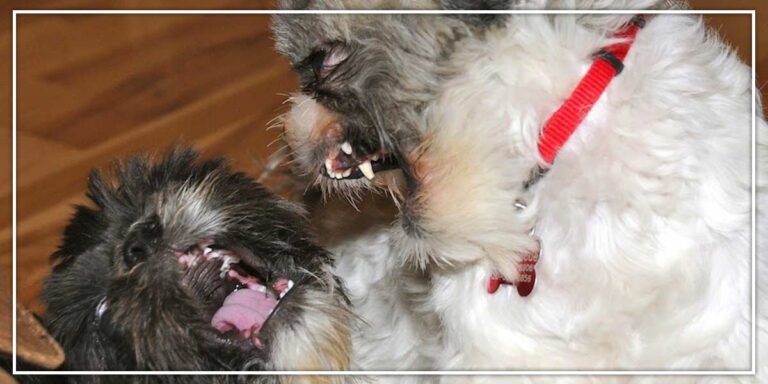Discover the Best Hypoallergenic Small Dog Breeds: What You Need to Know
Last Updated on May 4, 2024 by Petpalace54
Small dog breeds that tend to be hypoallergenic include the Bichon Frise & the Yorkshire Terrier. Many people would like to bring a dog into their household but are unable to due to allergies.
Want to Discover the Best Hypoallergenic Small Dog Breeds? Fortunately, there are hypoallergenic breeds that shed less hair and dander, which is great news for allergy sufferers. Here is a list of small dog breeds that are often considered hypoallergenic: Bichon Frise, Yorkshire Terrier, Chinese Crested, Maltese, Brussels Griffon, and Shih Tzu.
However, it’s important to note that no dog breed is completely hypoallergenic & that a person’s reaction to a particular dog may vary. However, these breeds are an excellent place to start for those looking for a new furry companion that won’t aggravate their allergies.

Credit: www.amazon.com
Table of Contents
Why Hypoallergenic Small Dogs?
Looking to add a small pooch to your furry family but worried about allergies? Worry not! Hypoallergenic small dog breeds are the perfect solution for you. They shed less and produce lower amounts of allergens, making them ideal for dog lovers who suffer from allergies. In this blog, we’ll explore the allergy problem and the benefits of hypoallergenic small dogs. Also, we’ll recommend some small, hypoallergenic dog breeds.
Allergy Problem
Allergy sufferers usually have to sacrifice the pleasure of owning a dog due to the allergens, often found in dog hair, dander, and saliva. Unfortunately, allergies are common, and the traditional solution – avoiding dogs entirely – is not acceptable to dog lovers. The good news is that certain dog breeds produce fewer allergens, and owning one of these breeds is possible.
Benefits Of Hypoallergenic Small Dogs
The main benefit of hypoallergenic small dogs is their low allergen production. These breeds produce fewer allergens than their non-hypoallergenic counterparts, making them an excellent option for allergy sufferers. These dogs don’t shed as much as other small breeds either, making them easier to groom. Hypoallergenic dogs are also very popular with pet lovers who don’t suffer from allergies but want to keep their homes free from dog hair and dander.
Some small hypoallergenic breeds require less exercise, which is perfect for apartment living or people with limited mobility. They are also known for being calm and gentle, making them great family pets. One thing to note is that while hypoallergenic doesn’t mean 100% allergen-free, these breeds produce significantly lower levels of allergens than others and are the best option for allergy sufferers who want to add a small dog to their family.
If you’re looking for a canine companion that is hypoallergenic and small, there are plenty of breeds to choose from.
| Breed | Description |
|---|---|
| Maltese | A small, elegant dog with a long, white coat that sheds very little. |
| Bichon Frise | An outgoing breed that is gentle and non-shedding, making it perfect for people with allergies. |
| Poodle | A classic hypoallergenic breed, Poodles are smart and active dogs that come in various sizes, making them perfect for small households. |
| Shih Tzu | A loyal breed with a long, silky coat that sheds very little, which is crucial for people with allergies. |
Yes, these are just a few examples of the many hypoallergenic small dogs available. No matter which breed you choose, it’s important to research their grooming needs & exercise requirements to ensure you’re making a suitable match.

Credit: www.everydayhealth.com
Top 5 Hypoallergenic Small Dog Breeds
For those who suffer from allergies, finding a hypoallergenic dog breed can be challenging. Luckily, several small dog breeds won’t cause sneezing and itching. Here are the top five hypoallergenic small dog breeds: Bichon Frise, Chinese Crested, Maltese, Poodle, and Shih Tzu.
If you love dogs but suffer from allergies, you may think that owning a dog is not possible. However, the good news is that you can still fulfill your dream of having a furry companion. Hypoallergenic dog breeds produce fewer allergens than non-hypoallergenic breeds, making them a great choice for those with allergies. In this article, we’ll take a look at the top 5 hypoallergenic small dog breeds that are perfect for people who suffer from allergies. Now, Discover the Best Hypoallergenic Small Dog Breeds Below.
Breeds Overview
1. Poodle
Poodles are known for their hypoallergenic coats that don’t shed much. They come in different sizes and colors, ranging from the standard poodle, miniature poodle, and toy poodle. They are also intelligent, friendly, and trainable dogs that are perfect for families. Poodles require regular grooming to maintain their hypoallergenic coat and keep them looking their best.
2. Bichon Frise
Bichon Frise is a small dog breed that is hypoallergenic and doesn’t shed much hair. They have a soft, curly, and fluffy coat that needs to be brushed regularly to keep them clean and well-groomed. Bichon Frise dogs are affectionate, playful, and gentle, making them great for families with children.
3. Maltese
Maltese dogs are one of the smallest hypoallergenic dog breeds. They are known for their long, silky, and white hypoallergenic coat that doesn’t shed much. Maltese dogs are gentle, playful, and affectionate companion dogs that are perfect for families with children, elderly people, or single people who want a loyal furry companion.
4. Shih Tzu
Shih Tzus are a small hypoallergenic dog breed that doesn’t shed much hair but requires daily grooming to maintain their long and silky coat. Shih Tzus have a friendly, affectionate, and playful temperament, making them perfect for families with children or older people who enjoy the company of small dogs.
5. Yorkshire Terrier
Yorkshire Terrier, also known as the Yorkie, is a small hypoallergenic dog breed that is perfect for people who suffer from allergies. They have a silky, hypoallergenic coat that doesn’t shed much hair but requires regular grooming to keep them clean and healthy. Yorkies are known for their bold and confident personalities, making them great family dogs.
In conclusion, if you are looking for a furry companion but suffer from allergies, hypoallergenic dog breeds are the perfect choice. The above-listed breeds are just some of the small hypoallergenic dog breeds available. Before adopting any dog, it is important to do your research and make sure the breed fits your lifestyle and needs.
Choosing The Right Hypoallergenic Small Dog
If you’re allergic to dogs but still want a furry companion, getting a hypoallergenic small breed is a great option. Not all small dogs are hypoallergenic, so it’s important to do your research before deciding on a breed. When choosing the right hypoallergenic small dog, there are several factors you will need to consider, including your lifestyle, grooming requirements, and temperament assessment.
Lifestyle Considerations
When choosing a hypoallergenic small dog, it’s essential to think about your lifestyle. Different breeds have different energy levels and exercise requirements, so you’ll want to get a dog that fits your lifestyle. For example, if you live in an apartment, getting a small, low-energy dog like a Maltese or Shih Tzu would be a good choice. However, if you live in a house with a backyard and like to go on long hikes, a small terrier like a West Highland White Terrier or Soft Coated Wheaten Terrier might be a better fit.
Grooming Requirements
Hypoallergenic dogs have hair instead of fur, which typically sheds less and produces fewer allergens. However, these breeds often require more grooming than their furrier counterparts to keep their coat healthy and prevent matting. When choosing a small hypoallergenic dog, consider the time and money you’re willing to invest in grooming. For example, a Bichon Frise or Yorkshire Terrier will need daily brushing and regular haircuts, while a Chinese Crested or Basenji has minimal shedding and lower grooming requirements.
Temperament Assessment
Choosing a hypoallergenic small dog with the right temperament is crucial to ensure a happy & harmonious relationship. While genetics play a role in a dog’s temperament, training and socialization also play a significant role. It’s essential to choose a breed that is compatible with your personality and lifestyle. For example, if you’re an active person, getting a playful dog like a Havanese or Miniature Schnauzer can be a good fit. However, if you’re looking for a lapdog, breeds like a Brussels Griffon or Toy Poodle may be more suitable.
Overall, choosing the right hypoallergenic small dog requires careful consideration of your lifestyle, grooming requirements, & temperament assessment. By doing your research and choosing a breed that fits your needs, you can enjoy the company of a furry companion without the risk of allergens.

Credit: www.everydayhealth.com
Caring For Your Hypoallergenic Small Dog
Hypoallergenic small dog breeds include the Shih Tzu, Maltese, Bichon Frise, and Yorkshire Terrier. Caring for your hypoallergenic pet involves regular grooming, allergen-free diets, and avoiding contact with known allergens.
If you or someone in your family has allergies, a hypoallergenic dog breed may be the perfect solution for your household. Small hypoallergenic breeds are especially popular as they are easier to manage in smaller living spaces. However, even hypoallergenic dogs require proper care and attention to keep them healthy and happy.
Feeding Tips
Feeding a small hypoallergenic dog requires special attention to their dietary needs. These dogs are at a higher risk of developing food allergies, so you must be careful with their food choices. It is essential to read the ingredients before choosing a dog food brand. Avoid dog food that contains wheat, corn, soy, & artificial preservatives and flavors. Opt for high-quality dog food that includes protein sources, such as salmon and lamb. Providing small, frequent meals is also important to aid digestion and to avoid overfeeding.
Exercise And Training
Small hypoallergenic dogs are active and energetic, and they need regular exercise to remain healthy. Take your furry friends for a daily walk or play games with them to keep them engaged and happy. Training is also crucial for these dogs as they can develop separation anxiety if left alone for extended periods. Incorporate positive reinforcement techniques, such as treats, praise, and playtime, into your training regimen to bond with your dog and achieve the desired behavior.
Common Health Issues
Like all dogs, even hypoallergenic small breeds are prone to certain health issues. Some common health problems include dental issues, ear infections, skin allergies, and respiratory problems. Keeping up with vaccinations and regular check-ups with a veterinarian is crucial to ensure the long-term health and well-being of your furry friend. Regular grooming sessions also prevent skin problems, as the groomer can spot any issues in the early stages before they become severe.
In conclusion, small hypoallergenic dogs require regular attention & care to maintain their health and happiness. By following these feeding tips, incorporating adequate exercise and training, and treating any underlying health issues, you can ensure that your furry friend remains healthy and happy for years to come.
Finding Your Perfect Hypoallergenic Small Dog
Discovering the right hypoallergenic small dog can be a challenge. However, several breeds, such as the Bichon Frise, Maltese, and Shih Tzu, are excellent choices for people who tend to have allergies. These canine companions are perfect for individuals seeking affectionate and adorable pets that do not trigger allergic reactions.
If you love dogs but suffer from allergies, hypoallergenic dog breeds may be the solution. Small hypoallergenic dog breeds are great companions for people who suffer from allergies and also live in small homes. If you are looking for a hypoallergenic small dog, there are several breeds you can consider. However, finding the perfect hypoallergenic small dog involves finding a reputable breeder or looking for adoption or rescue organizations.
Reputable Breeders
One way of finding your perfect hypoallergenic small dog is through reputable breeders. A reputable breeder must follow ethical practices when breeding & raising their dogs. You can research local breeders online to learn more about their certifications, breeding history, and customer reviews.
When considering breeders, you should also visit the breeder’s location to interact with the dogs and ascertain the cleanliness of their facilities. Furthermore, a reputable breeder should provide you with the dog’s medical history, vaccinations, and any other necessary paperwork.
Adoption From Shelters
Adopting a hypoallergenic small dog from a shelter is another alternative. Many animal shelters are full of dogs that require a caring home. Before you start your adoption process, you must research the shelter’s rules to ensure you are eligible to adopt.
When inquiring about adopting a hypoallergenic dog, remember to ask about the shelter’s allergy-friendly policies. Ensure that the dog has undergone the necessary medical check-up, vaccination, and is spayed or neutered. Adopting an older dog also means you can learn more about their personalities which might help you choose the perfect hypoallergenic small dog for you.
Rescue Organizations
Many rescue organizations specialize in rescuing hypoallergenic small dogs. These organizations rescue dogs from different backgrounds, including abandoned, strayed, or surrendered dogs. Rescue organizations often have a thorough screening process to match the hypoallergenic small dogs with appropriate owners.
If you are considering adopting a hypoallergenic small dog from a rescue organization, you should check their credibility and visit their facilities. You should also inquire about the process of adopting a hypoallergenic small dog, any fees or costs, the dog’s medical history, temperament, and behavioral issues.
Basically, finding a hypoallergenic small dog requires careful consideration of your options. Whether you decide to go through a breeder or adopt from a shelter or a rescue organization, ensure that you learn everything you can about the dog, such as their medical history and temperament. With proper research, you can find the perfect hypoallergenic small dog that complements your lifestyle.
Frequently Asked Questions Of What Small Dog Breeds Are Hypoallergenic
What Is The Smallest Most Hypoallergenic Dog?
The Chihuahua is the smallest hypoallergenic dog breed. They weigh about 2-6 pounds and have short hair. Their minimal shedding reduces the risk of an allergic reaction.
What Is The Best Small Dog For People With Allergies?
The best small dog for people with allergies is a hypoallergenic breed like the Bichon Frise, Maltese, or Shih Tzu. These breeds have hair instead of fur and produce less dander, reducing the risk of triggering an allergic reaction.
What Is The #1 Hypoallergenic Dog?
The #1 hypoallergenic dog is the Poodle. They have curly and non-shedding fur, which helps reduce allergens in the air, making it easier for individuals with allergies. Their low-shedding coat requires regular grooming to prevent matting.
What Is The Best Small Non-Shedding Dog For A Family?
The best small non-shedding dog for a family is a Bichon Frise. They are affectionate, playful, and great with kids. They also have hypoallergenic fur, making them a good choice for those with allergies. Bichon Frises are easy to train and adapt well to different living situations.
Final Thoughts
It’s not easy for allergy sufferers to live with dogs, but there’s hope. With the right information, those with allergies can find small hypoallergenic dog breeds that won’t cause discomfort and allergies. In this blog, we have Discovered the Best Hypoallergenic Small Dog Breeds and some of the most adorable & charming small hypoallergenic dog breeds.
Hence, you can bring these fur babies home without worrying too much. With proper care and love, they will bring immense happiness and comfort to your life.

